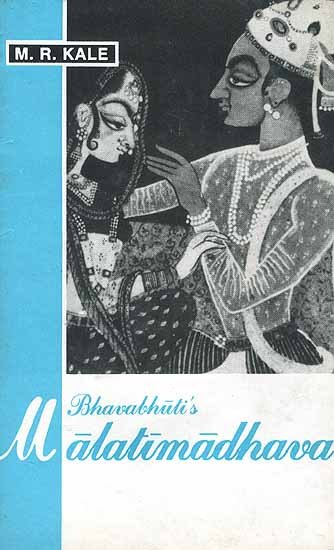Malatimadhava (study)
by Jintu Moni Dutta | 2017 | 52,468 words | ISBN-10: 8120813057 | ISBN-13: 9788120813052
This page relates ‘Definition of Dosha (poetic defects)’ from the English study on the Malatimadhava of Bhavabhuti:—A Prakarana type of Drama in ten acts revolving around the love-story of Malati (from Padmāvatī) and Madhava (from Vidarbha). This study discusses the history of its author and the literary, social, religious, historical and cultural aspects of the Malatimadhava.
Part 5.1-2 - Definition of Doṣa (poetic defects)
The alaṃkāras (figures of speech), rasas (sentiments), guṇas (qualities), as well as candas (metres) are regarded desirable attributes of a composition whereas, the doṣas or poetic defects are regarded as undesirable elements. Any element which tends to detract the poetic composition is a demerit in general terms. In other words, doṣas are the opposites of the guṇālaṃkāras. Consequently, if to accomplish alaṃkāras is an important activity, to avoid doṣas is an equally important duty of the poet.
In this regard, Bhāmaha has remarked that not a single faulty word be used in poetry and the composer of bad poetry is condemned like the father of a bad son.[1] Further, he says that enability to compose poetry does not lead to unrighteousness, disease or punishment but the learned maintains that the composition of bad poetry is direct death of the poet.[2]
Daṇḍin opines that in a poem, no sort of blemish however trivial, should be allowed even a body may become loathsome because of a single defect of a spot of white leprosy.[3]
Abhinavagupta emphasizes this fact by remarking that poetry even if it is devoid of poetic excellences and figures, is acceptable if it is just free from defects. [4]
Division of Doṣa:
The first element of the definition of poetry of Bhoja and Mammaṭa is the condition of its being free from faults.[5] Bharata enumerates ten types of faults in poetic composition.[6] In the Agnipurāṇa, the poetic defect is defined as one which causes concern to the critic.[7] According to Vāmana, the avoidance of defect in poetry is as essential as the employment of the guṇas.[8] Further he says that they are five-fold.[9]
According to Bhāmaha, anything that is employed directly or indirectly and for that reason perturbs the mind of a man of taste (sahṛdaya) constitutes a defect.[10]
In the Sāhityadarpaṇa, Viśvanātha says doṣas are five fold[11] ——
- pada-doṣa (Defects of word)
- padāṃśa-doṣa (Defects occurring in parts of words)
- vākya-doṣa (Defect of sentence)
- artha-doṣa (Defect of sense)
- rasa-doṣa (Defects of sentiment)
Footnotes and references:
[1]:
sarvathā padamapyeka na nigādyamavadyavat /
vilakṣaṇā hi kāvyena duḥsuteneva nindyate //
Kāvyālaṃkāra,I.11
[2]:
nākavitvamadharmāya vyādhaye daṇḍanāya vā /
kukavitvaṃ punaḥ sākṣātmṛtimāurmanīṣiṇah //
Ibid.,I.12
[3]:
tadalpamapi nopekṣyaṃ kāvye duṣṭaṃ kathañcan /
syādvapuḥ sundaramapi ścvitreṇaikena durbhagam //
Kāvyādarśa,I.7
[4]:
etatddoṣa vihīnaṃ śrutisukhaṃ dīptarasaṃ ca yadi bhavatu tāvatā guṇāntarairalaṃkāraiścahīnamapikāvyaṃlakṣaṇayogā vyabhicārītyuktam//
Abhinavabhāratī on Bharata’s Nāṭyaśāstra, XVI.95
[5]:
Sarasvatīkaṇṭhābharaṇam,I.2 Kāvyaprakāśa,I.4
[6]:
gūḍhārthamarthāntaramarthahīnaṃ bhinnārthamekārthamabhiplutārtham /
nyāyādapetaṃ viṣamaṃ visandhi śabdayutaṃ vai daśa kāvyadoṣāḥ /
Nāṭyaśāstra,XVI.88
[8]:
kāvyālaṃkārasūtravṛtti,II.1.1
[10]:
Kāvyālaṃkāra,I.6,7,11,51
